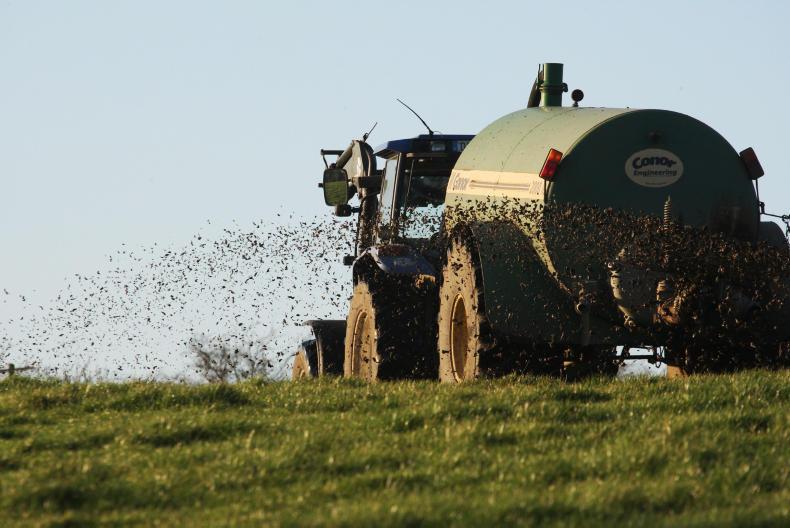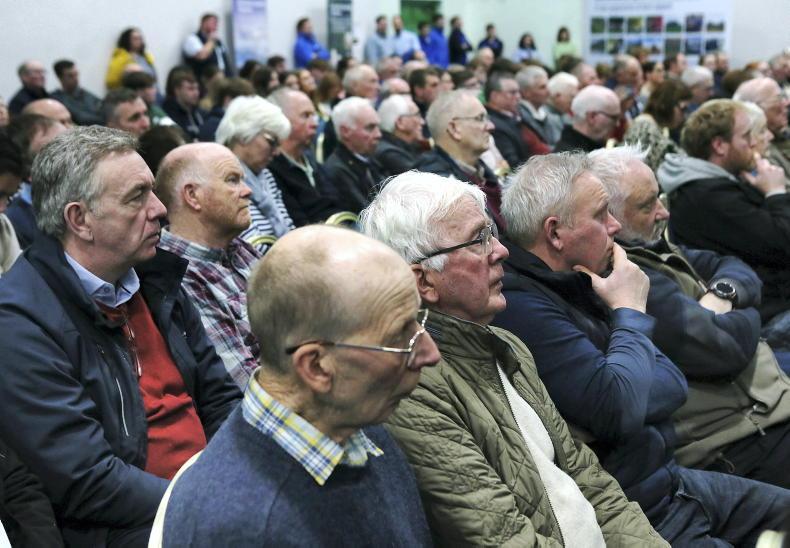Approximately 2,300 farms in NI have been identified by DAERA as potentially being stocked above the 170kgN/ha/year livestock manure limit set out in the Nitrates Action Programme (NAP).
The figure compares to only 310 farms that were approved in 2017 under the derogation, which allows nitrogen loading limits on a farm to increase to 250kgN/ha/year.
For those farms over 170kg of manure N, and not using the derogation, they must export slurry off the farm to stay within the rules.
A major drive is now under way in DAERA to get more farmers to apply for the derogation and also ensure higher compliance with the NAP requirements.
Avoid penalties
A DAERA letter to the 2,300 farmers encourages them to calculate their nitrogen loading for 2018 and take action to avoid potential cross-compliance penalties.
Options for those over the 170kg limit include exporting manures and submitting records of this to the Northern Ireland Environment Agency (NIEA), increasing the area farmed in 2018, reducing livestock numbers or applying for the derogation.
According to NI Agricultural Consultants Association chair David Rankin, more farmers should consider the derogation option. He points out that DAERA has made it easier to apply for a derogation this year as the process only requires information on the planned stocking rate for 2018, and does not require details from previous years.
Under a derogation, farmers are required to calculate a phosphorous balance by subtracting the phosphorous exported off the farm, through milk and cattle sales, from phosphorus imported on to the farm through purchase of concentrates, fertiliser and straw.
“Nitrogen loading also has to be calculated from livestock numbers on APHIS and the area farmed in the Single Application Form. A summary for nitrogen loading and P balance is then submitted,” Rankin said.
Deadlines
Applications for derogations have moved online this year and must be submitted by 1 March 2018.
Also moving online is the process for submitting records of manure exports during 2017 to NIEA, with the deadline now extended from 31 January 2018 to 1 March 2018. Manure export records must include information on the date moved, type of livestock manure, quantity, transporter’s name and address and importer’s name and farm business ID.
According to DAERA, the new online process (available via DAERA online services) will reduce the possibility of errors being made when completing applications. However, online applications also mean that records will be processed much quicker than before, and any issues will be easily identified.
Nitrogen loading calculators are available through DAERA online services and workshops on nitrogen loading and slurry exports are being held today (Thursday) at CAFRE Greenmount, and on 31 January and 1 February at the Glenavon Hotel, Cookstown.










SHARING OPTIONS